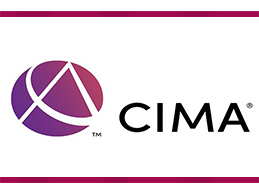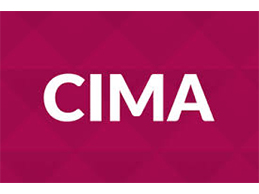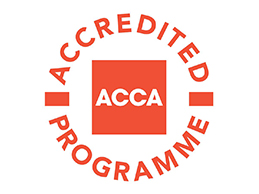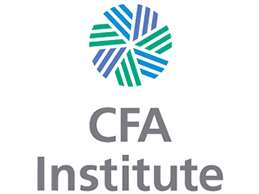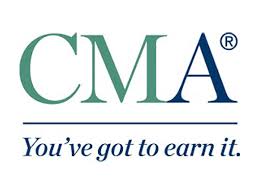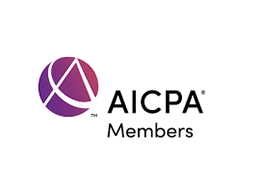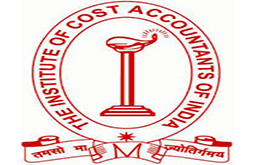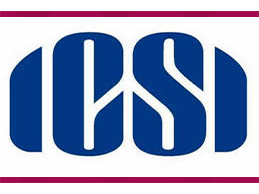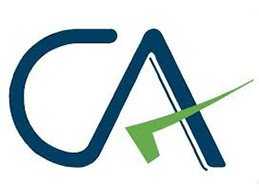CMA - USA
“Today is the First Day of the Rest of your Career. Make it Count.”
The US CMA® Course is globally recognized, advanced-level credential appropriate for accountants and financial professionals in business. Achieving the US CMA demonstrates your professional Expertise in Financial Planning, Analysis, Control, Decision Support, And Professional Ethics – skills that are in demand by organizations around the world.
 The US CMA course or certification is offered by IMA® (Institute of Management Accountants) of USA, which is the worldwide association of accountants and financial professionals in business. It was founded in 1919, having 100,000+ members and global reach of 140 countries through 300 professional and student chapters. MY Commerce has partnered with Top MNC’s / Big 4’s / Overseas Universities to offer students and professionals the best in class official IMA® study material along with extensive classroom training for the CMA course.
The US CMA course or certification is offered by IMA® (Institute of Management Accountants) of USA, which is the worldwide association of accountants and financial professionals in business. It was founded in 1919, having 100,000+ members and global reach of 140 countries through 300 professional and student chapters. MY Commerce has partnered with Top MNC’s / Big 4’s / Overseas Universities to offer students and professionals the best in class official IMA® study material along with extensive classroom training for the CMA course.
The IMA grants the designation to candidates who have met specific requirements, such as passing the CMA exam. The Institute of Certified Management Accountants (ICMA), which creates the CMA exam, regularly assesses the CMA exam content to confirm that its current topics are up to date and relevant for modern business. The CMA exam content represents the knowledge, skills, and abilities that a contemporary accounting or finance professional employs on the job. Such skills include financial planning, analysis, control, and decision support.
Certified Management Accountants are uniquely equipped not only to play a critical role in the Accounting & Financial department of a company but also to hold a high position of leadership in the management side of the company. CMAs have the financial understanding to make wise money decisions.
Furthermore, CMA’s also possess the business acumen to help the company operate efficiently and effectively. For this reason, Certified Management Accountants can fit into a wide range of positions and lead interesting and varied CMA careers.
CPA - USA
A Certified Public Accountant (CPA) is the highest standard of competence in the field of Accountancy across the globe. The exam is administered by the American Institute of Certified Public Accountants (AICPA), which is the world’s largest accounting body. If you ever consider a career in accounting and want an illustrious career, CPA Course is the best option for you. CPAs are globally recognized as premier accountants and are hired across industries throughout the world.
 A certified public accountant (CPA) is a designation given by the American Institute of Certified Public Accountants (AICPA) to individuals that pass the Uniform CPA Examination and meet the education and experience requirements. The CPA designation helps enforce professional standards in the accounting industry. Other countries have certifications equivalent to the CPA designation, notably, the chartered accountant (CA) designation.
A certified public accountant (CPA) is a designation given by the American Institute of Certified Public Accountants (AICPA) to individuals that pass the Uniform CPA Examination and meet the education and experience requirements. The CPA designation helps enforce professional standards in the accounting industry. Other countries have certifications equivalent to the CPA designation, notably, the chartered accountant (CA) designation.
Obtaining the certified public accountant (CPA) designation requires a Master’s degree in business administration, finance, or accounting. Individuals are also required to complete 150 hours of education and have no fewer than two years of public accounting experience. CPAs must pass a certification exam whose requirements vary by state. Additionally, keeping the CPA designation requires completing a specific number of continuing education hours yearly.
CPA eligibility criteria is different for the US citizens and candidates from rest of the world. The consent agreement, international testing fees, and additional identification requirements of international candidates is different from that of the US candidates.The application to apply for the CPA exam as an international student is very similar to domestic candidates. The only real difference is in the educational requirements. Most US Colleges and Universities are accredited and approved by NASBA and the AICPA. Thus, US candidates don’t tend to have problems with their education requirements. Before you apply, check the NASBA site to make sure your institution is recognized.
The amount that a CPA is paid is based on various factors; the number of years of experience that you have and the type of work that you have done play a role in determining your salary level. Another factor that influences your salary is the state in which you work. The highest number of job opportunities for accountants and auditors is in California.
ACCA - UK
The ACCA body is the global body for Accounting and Finance Professionals. It aims to offer business-relevant, first-choice qualification to people of application, ability and ambition around the world, who seek a rewarding career in accountancy, finance and management.
It is the world’s fastest-growing gateway to the professional opportunities in accounting, finance and business, helping people and students who aim to become successful global leaders.
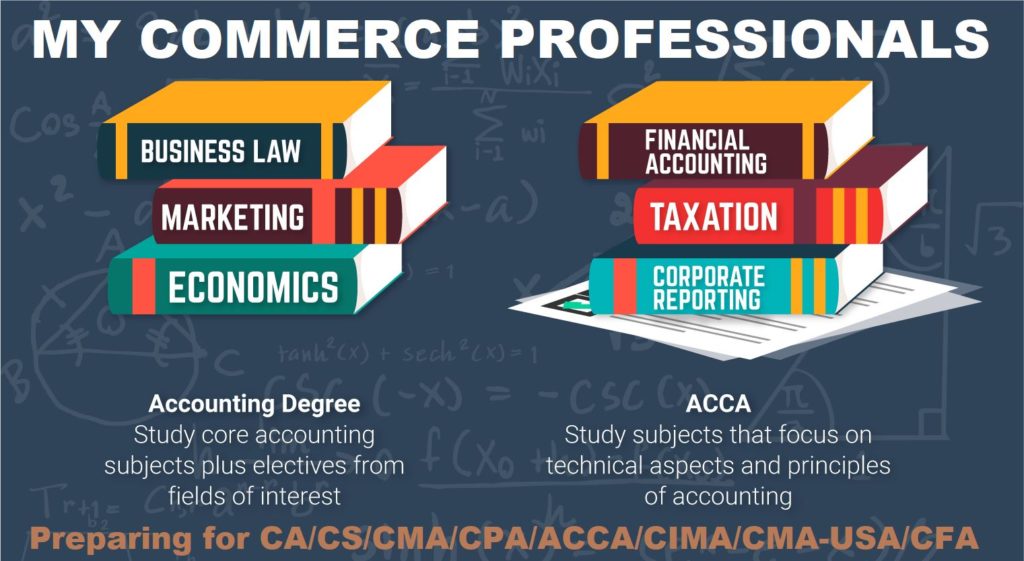 The Association of Chartered Certified Accountants (ACCA) is the global professional accounting body offering the Chartered Certified Accountant qualification (ACCA). ACCA’s headquarters are in London with principal administrative office in Glasgow. ACCA works through a network of over 104 offices and centres in 52 countries – with 323 Approved Learning Partners (ALP) and more than 7,300 Approved Employers worldwide, who provide employee development.
The Association of Chartered Certified Accountants (ACCA) is the global professional accounting body offering the Chartered Certified Accountant qualification (ACCA). ACCA’s headquarters are in London with principal administrative office in Glasgow. ACCA works through a network of over 104 offices and centres in 52 countries – with 323 Approved Learning Partners (ALP) and more than 7,300 Approved Employers worldwide, who provide employee development.
The term ‘Chartered’ in ACCA qualification refers to the Royal Charter granted in 1974.
‘Chartered Certified Accountant’ is a legally protected term. Individuals who describe themselves as Chartered Certified Accountants must be members of ACCA and if they carry out public practice engagements, must comply with additional regulations such as holding a practicing certificate, carrying liability insurance and submitting to inspections.
The ACCA syllabus consists of 14 examinations. The Fundamental level includes 9 examinations (F1 – F9). From the Professional level, you must complete 5 exams prior to receiving your certification. This includes papers P1, P2, and P3, which are compulsory, followed by 2 out of the 4 optional papers P4, P5, P6, and P7.
There are four paper exam sessions each year, and computer-based exams are also available on-demand for some papers. Depending on your previous qualifications, you may also be exempt from certain papers.
CFA - USA
The predecessor of CFA Institute, the Financial Analysts Federation (FAF), was established in 1947 as a service organization for investment professionals. The FAF founded the Institute of Chartered Financial Analysts in 1962; the earliest CFA charter holders were “grandfathered” in through work experience only, but then a series of three exams was established along with a requirement to be a practitioner for several years before taking the exams. In 1990, in the hopes of boosting the credential’s public profile, the CFA Institute (formerly the Association for Investment Management and Research) merged with the FAF and the Institute of Chartered Financial Analysts (ICFA).
 The first exam was held in June 15, 1963, and over 300 analysts studied for and took the exam. As this was the first time, many of the candidates were actually seasoned pros – in fact all who studied for that particular exam were at least 45 years old – 33 of them were over 60 – and many had 30+ years’ experience as analysts. By 2003 fewer than half the candidates in the CFA program were based in the United States and Canada, with most of the other candidates based in Asia or Europe. The number of charter holders in India and China had increased by 25% and 53%, respectively, from 2005-06.
The first exam was held in June 15, 1963, and over 300 analysts studied for and took the exam. As this was the first time, many of the candidates were actually seasoned pros – in fact all who studied for that particular exam were at least 45 years old – 33 of them were over 60 – and many had 30+ years’ experience as analysts. By 2003 fewer than half the candidates in the CFA program were based in the United States and Canada, with most of the other candidates based in Asia or Europe. The number of charter holders in India and China had increased by 25% and 53%, respectively, from 2005-06.
The curriculum for the CFA program is based on a Candidate Body of Knowledge established by the CFA Institute. The curriculum comprises the topic areas below. There are three exams (“levels”) that test the academic portion of the CFA program. All three levels emphasize the subject of ethics. The material differences among the exams are:
- The Level I study program emphasizes tools and inputs, and includes an introduction to asset valuation, financial reporting and analysis, and portfolio management techniques.
- The Level II study program emphasizes asset valuation, and includes applications of the tools and inputs (including economics, financial reporting and analysis, and quantitative methods) in asset valuation.
- The Level III study program emphasizes portfolio management, and includes descriptions of strategies for applying the tools, inputs, and asset valuation models in managing equity, fixed income, and derivative investments for individuals and institutions.
CIA - USA
Certified Internal Auditor (CIA) is a certification programme offered by the Institute of Internal Auditors-USA. In India, IIA India manages the programme. CIA programme helps candidates to gain professional knowledge in internal audit.
Unlike MBA, executive MBA, distance MBA, B.E/B.Tech or any other national level exams, there is no specific entrance exams since it is a certification programme.
 The certification module is divided into three parts-I,II and III. Part I of CIA programme focuses on essentials of Internal Auditing. Part II includes practice of Internal Auditing. Part III includes business knowledge for Internal Auditing. Certificate will be provided to candidates only if they complete all the examinations successfully.
The certification module is divided into three parts-I,II and III. Part I of CIA programme focuses on essentials of Internal Auditing. Part II includes practice of Internal Auditing. Part III includes business knowledge for Internal Auditing. Certificate will be provided to candidates only if they complete all the examinations successfully.
Upon completing the course, candidates find opportunities in public and private companies, non-profit organisations etc. Candidates are offered profiles of internal auditor, internal auditing manager, chief internal auditor, quality assurance manager etc. The average salary offered to CIA candidates ranges between Rs 4 lakh to Rs 9 lakh per annum.
CIA syllabus is different for each part of exam. The syllabus serves as a guide to help candidates identify the content based on which they will be tested in the exam.
Certified Internal Auditors are now in high demand because they contribute to key business functions including corporate governance, risk management, internal control, fraud detection and prevention, operations etc. Candidates with CIA can become internal auditor, internal auditing manager, auditor, chief internal auditor, quality assurance manager, internal audit director and auditing manager.
The Certified Internal Auditor (CIA) designation will help you demonstrate you are a true expert that understands these needs. Certified Internal Auditors (CIA’s) play a key role in enhancing control environments within entities and managing risks that entities’ face for the achievement of objectives by providing assurance and consultancy services on governance, risk management and control activities of an entity.
IFRS - Diploma
The International Accounting Standards Committee (IASC) was established in June 1973 by accountancy bodies representing ten countries. It devised and published International Accounting Standards (IAS), interpretations and a conceptual framework. These were looked to by many national accounting standard-setters in developing national standards.
The Conceptual Framework serves as a tool for the IASB to develop standards. It does not override the requirements of individual IFRS. Some companies may use the Framework as a reference for selecting their accounting policies in the absence of specific IFRS requirements.

Diploma IFRS is designed to develop an individual’s knowledge of IFRS, providing an understanding of the concepts and principles which underpin them and their application in the international marketplace, thereby helping professionals prepare for work in the IFRS environment.
Professionals who have already done or are doing courses like Chartered Financial Analyst (CFA), Cost and Works Accountant, Chartered Accountancy (CA), Company Secretary (CS), Certified Financial Planner (CFP) and MBA in Finance or Accounting should opt for IFRS certification to become at par with global finance professionals.
There is a huge scope of growth for IFRS professionals, especially for those who are beginning their career in finance than those with mid-level or senior-level accounting experience.
The IFRSs has become the global accounting icon and almost all career avenues related to finance & accounting are affected by these accounting reforms. The accounting standards are the principle and practices which lay down a framework on which financial statements of an enterprise are prepared. These international standards have become obligatory for the corporate who want to exploit global financial markets by making a listing of their company on international stock exchanges, by way of joint ventures or by any other mode.
The implementation of IFRS as an essential norm for doing business in global markets has turned it into a mandatory requirement for the companies. The companies are seeking this expertise as eligibility for the accounting professionals. Moreover, the companies are also facilitating the existing employees in this area to learn these standards. The proficiency in these international standards is highly recommended for Chief Accountant, Chief Financial Officer, Finance Managers, Bank Managers, Financial Controllers, Accountants, Financial Analyst, Auditors and Portfolio Managers.
FRM
Financial risk management is the practice of economic value in a firm by using financial instruments to manage exposure to risk: operational risk, credit risk and market risk, foreign exchange risk, shape risk, volatility risk, liquidity risk, inflation risk, business risk, legal risk, reputational risk, sector risk etc. Similar to general risk management, financial risk management requires identifying its sources, measuring it, and plans to address them.
Financial risk management can be qualitative and quantitative. As a specialization of risk management, financial risk management focuses on when and how to hedge using financial instruments to manage costly exposures to risk.
 In the banking sector worldwide, the Basel Accords are generally adopted by internationally active banks for tracking, reporting and exposing operational, credit and market risks.
In the banking sector worldwide, the Basel Accords are generally adopted by internationally active banks for tracking, reporting and exposing operational, credit and market risks.
Financial Risk Management Course is a qualification for risk management professionals. FRM designation is an international professional certification offered by the Global Association of Risk Professionals. Credit risk, liquidity risk, market risk, etc. are examined and controlled. A wide variety of functions related to risk management within investment banks, asset management firms, as well as in corporations and government agencies are executed.
In order to obtain the FRM designation, candidates are required to meet two key requirements: Successfully pass two separate FRM exams, and complete a minimum of two years of full-time work experience in the field of financial risk, or related areas.
Financial risk management is the practice of economic value in a firm by using financial instruments to manage exposure to risk: operational risk, credit risk and market risk, foreign exchange risk, shape risk, volatility risk, liquidity risk, inflation risk, business risk, legal risk, reputational risk, sector risk
The FRM Exam covers the application of risk management tools and techniques to the investment management process. The questions are practical and related to real-world work experiences. Candidates are expected to understand risk management concepts and approaches as they would apply to a risk manager’s day-to-day activities. The exam tests knowledge of the tools used to assess financial risks, such as quantitative analysis, fundamental risk management concepts, financial markets and products, and risk models.


